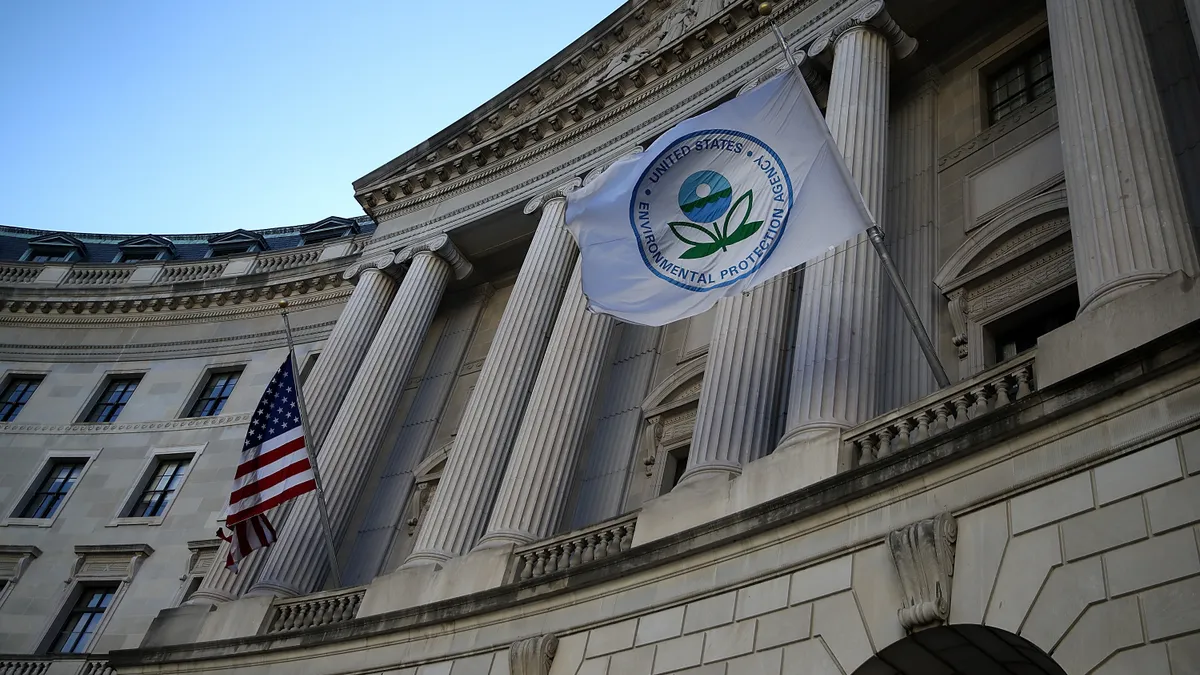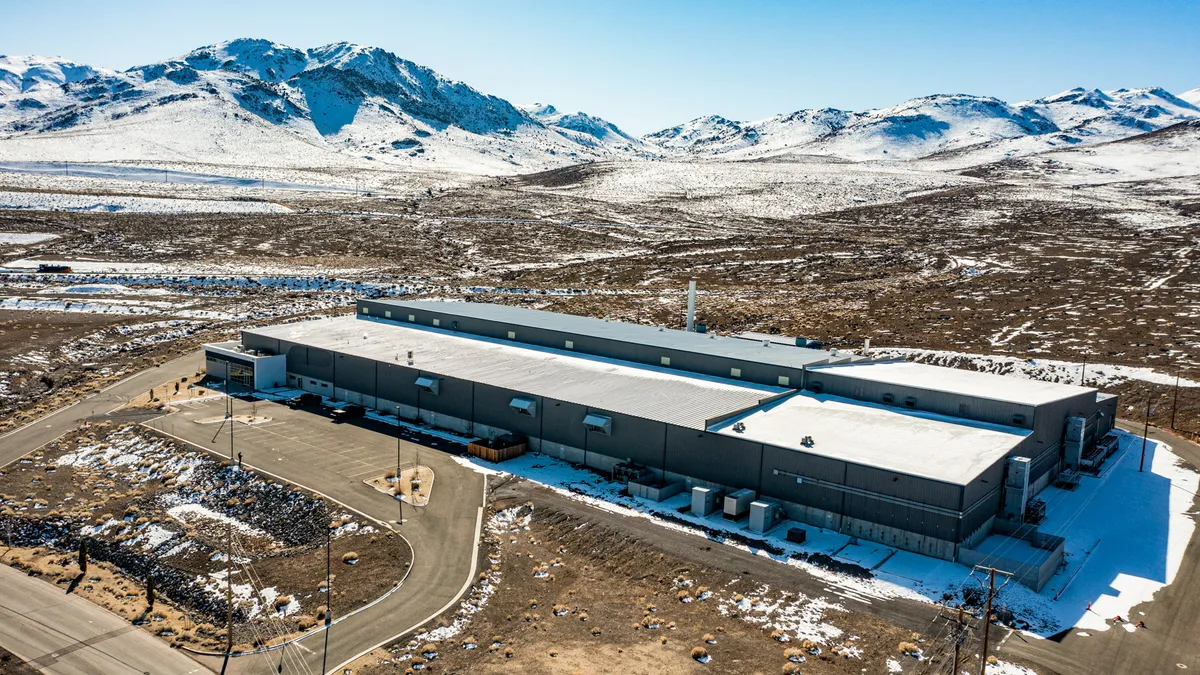Non-governmental organizations and labor groups are sounding the alarm over environmental programs that are experiencing funding problems amid the transition to President Donald Trump’s administration.
The widespread confusion stems in part from a memo Trump released and rescinded last week that tried to halt programs related to environmental justice and the "green new deal."
The Trump administration is battling with state attorneys general in court to allow its funding pause plan to continue. But despite a judge issuing a temporary restraining order on the pause, federal employees are being told not to respond to any grantee whose funding is related to the Inflation Reduction Act or the Infrastructure Investment and Jobs Act, according to Jillian Blanchard, vice president of climate change and environmental justice for Lawyers for Good Government.
“Even though the piece of paper has been technically rescinded, the pause remains in effect,” Blanchard said on a press call Friday. “These federal employees are being scared into not providing details [to grantees].”
Dozens of U.S. EPA programs appear to be affected, according to a list published by the New York Times last week. The list includes the Solid Waste Infrastructure for Recycling grants program, the Recycling Education and Outreach program and the Climate Pollution Reduction Grants programs. Research programs like the Science to Achieve Results research program, which has funded landfill emissions research, were paused. So too are several Superfund programs, per the list.
The Urban Agriculture and Innovative Production Grants Program, which oversees the Composting and Food Waste Reduction Cooperative Agreements funding for several projects nationwide, was also included in the list.
Several recipients of grants via those programs did not respond to Waste Dive’s requests for comment. The ultimate effect of the pause is unclear, but federal grant recipients are often obligated to follow a timeline to implement funded projects or programs. If they lack access to federal funds, they can risk falling out of compliance with that timeline, which jeopardizes the funding, according to Blanchard.
“[The Trump administration’s] actions are unconstitutional and in violation of federal law,” she said. “The executive, first and foremost, is not authorized to delay funding.”
Inside federal agencies, employees hired to implement these programs are facing disorder and recrimination, said Marie Owens Powell, president of AFGE Council 238, which represents EPA employees. On the Friday call, she said environmental justice reviews within the agency are already being rolled back.
Powell criticized an email sent to federal employees last week entitled “Fork in the Road,” which encouraged many to sign an agreement to leave their jobs by September. The union is treating the offer with deep skepticism — Powell said its legality is unclear, and funds to pay the remaining salaries for employees who accept the so-called buyout have not been specifically allocated by Congress.
Employees at the EPA and other agencies are also urged to stop all work related to environmental justice or diversity, equity and inclusion initiatives. Powell said that could undermine foundational programs that clean up toxic sites, like Superfund. The move could also affect recipients of Community Change grants, several of which have gone toward funding recycling and waste systems in underserved communities.
“I've been with the agency for more than 33 years and I've never seen anything like this,” Powell said. “Literally every day, folks are afraid to turn their computers on. They don't know what message will be coming out next.”
The Trump administration’s attempted funding rollbacks began on Jan. 20, when it issued memos designed to limit federal programs that Trump and his administration opposed on ideological grounds. His Ending Radical and Wasteful Government DEI Programs and Preferencing memo, signed on Jan. 20, outlined a plan to “terminate, to the maximum extent allowed by law, all DEI, DEIA, and ‘environmental justice’ offices and positions.”
On Jan. 28, the Office of Management and Budget sent a memo to federal agencies ordering a far-reaching funding freeze until programs could be individually approved to continue. The memo threw a variety of federal programs, including Medicaid and food stamps, into uncertainty before the White House began communicating piecemeal clarifications that such programs could continue operating. Then, on Jan. 29, OMB issued a second memo rescinding the previous memo.
Attorneys general from 22 states and Washington, D.C. said the about-face didn’t do enough to get funding flowing again in a case before the U.S. District Court for the District of Rhode Island. In a ruling on the case late Friday, Judge John McConnell issued a temporary restraining order forcing federal agencies, including EPA, to continue flowing money to those suing for obligated funds. In his ruling, McConnell cited a post made by White House Press Secretary Karoline Leavitt on X, the platform formerly known as Twitter, stating "This is NOT a rescission of the federal funding freeze.”
McConnell said the evidence pointed to Trump’s directive carrying on, absent intervention. The Trump administration has cited its Jan. 29 rescission of the OMB memo as a reason not to move forward with a restraining order, and argued the states have not demonstrated that a pause described as temporary would cause any lasting damage.
McConnell is the second judge to order the Trump administration to reverse its pause on federal funding to many programs. Another judge in Washington, D.C., is scheduled to hold a hearing on the case Monday.























